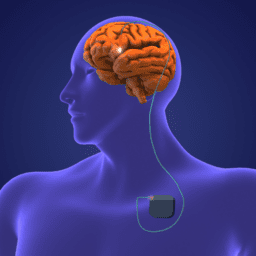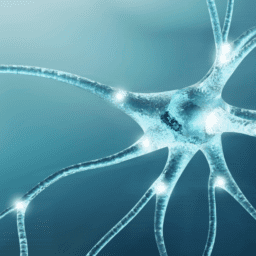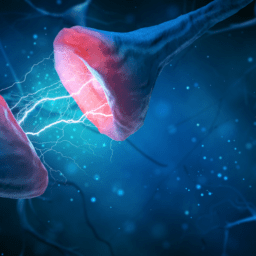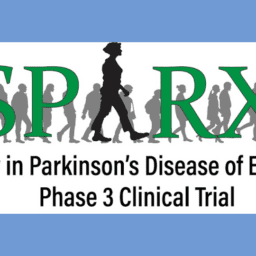Blood brain barrier breakdowns. Selfies as Parkinson’s predictors. Vibrating gloves for symptom relief. New guidelines from the American Academy of Neurology. Numerous new survey and research opportunities. And so much more! Here’s what’s new in the world of Parkinson’s this month. Let us know if we missed anything!
PARKINSON’S ARTICLES
- In Nature, researchers at Northwestern University explain how, through gene therapy targeting the brain’s substantia nigra region, they were able to restore neurons’ ability to convert levodopa into dopamine in a mouse model. They also found that damage to the mitochondria inside dopamine-producing neurons can lead to Parkinson’s. “Whether mitochondrial damage was a cause or consequence of [Parkinson’s] has long been debated. Now that this issue is resolved, we can focus our attention on developing therapies to preserve their function and slow the loss of these neurons,” said James Surmeier, PhD, chair of neuroscience at Northwestern’s Feinberg School of Medicine.
- With a $9 million grant from the Aligning Science Across Parkinson’s (ASAP) initiative, an international team led by the University of Ottawa will investigate whether scent-processing nerves that connect the inside of the nose to the brain play a role in the development of Parkinson’s. Through animal models and studies involving humans, the team will explore possible links between environmental exposures in the nasal cavity, inflammation, odor-processing centers in the brain, and Parkinson’s-related genes.
- Two other ASAP initiative grants will fund researchers at Northwestern University for two different studies. One will investigate the dysfunction of brain circuits (and what causes this dysfunction) that leads to moving and sleeping problems in people with Parkinson’s. The other will investigate dopamine-producing neurons in the substantia nigra pars compacta, including how these neurons contribute to movement and how they are impacted by Parkinson’s.
- Similarly, two research teams at Duke University will use ASAP grants for innovative Parkinson’s studies, with one exploring how cells that closely communicate with and support dopamine-producing neurons may play a role in Parkinson’s and one looking at the role that specialized cells in the gut (known as enteroendocrine cells) play in the onset of Parkinson’s.
- Findings published in the journal Neurology show how the death rate from Parkinson’s in the US has increased by 63% over two decades, across all age groups, sexes, and racial and ethnic groups. In the same period (1999-2019), twice as many men died from Parkinson’s-related causes than women, and a higher death rate was also seen among white people compared to those from other racial and ethnic backgrounds.
- When conducting a longitudinal study about the efficacy of the drug nilotinib in treating people with Parkinson’s, researchers from Georgetown University Medical Center discovered that in some people with Parkinson’s, the blood brain barrier (BBB) doesn’t work optimally, which allows inflammatory cells and molecules to enter and damage the brain. Their findings, published in the journal Neurology Genetics, suggest that the BBB “potentially offers a target for the treatment for Parkinson’s…Knowing that a patient’s brain vascular system is playing a significant role in the progression of the disease is a very promising discovery.”
- Through a three-year collaboration between the Precision Neurology company Altoida and Ionian University in Greece, researchers will investigate how Altoida’s medical device (an FDA Breakthrough Device being developed for early diagnosis and monitoring of Alzheimer’s) may be effective at early diagnosis and prediction of Parkinson’s.
- A November featured on Alzforum highlights five recently published studies that explore the links between health and lifestyle factors (including exercise, influenza infection, and white-matter hyperintensities) and Parkinson’s.
- Hundreds of farmers in the US have filed product liability lawsuits against Swiss-based Syngenta Group over its failure to warn them that paraquat (its top-selling herbicide) is linked to serious health problems, including Parkinson’s. Although paraquat, which has been sold in the US since the 1960s, is no longer registered for sale in 72 countries (including Switzerland and China), it is still being sold in 27 countries, including the US.
- At the recent Society for Neuroscience’s 50th Annual Meeting, researchers from the biotech company Second Genome presented findings from a meta-analysis of 992 people with Parkinson’s and 663 controls which was designed to identify bacterial strains depleted in the gut microbiome of people with Parkinson’s. The goal of the study was to discover potentially therapeutic bacterial factors to reduce the buildup of ɑlpha-synuclein; findings showed that 168 bacterial strains were “significantly depleted” in people with Parkinson’s as compared to the control group, and 441 strains were significantly enriched in people with Parkinson’s. Second Genome plans to use this data to develop predictive biomarkers and future therapies for Parkinson’s using its sg-4sight platform.
- Computer vision software developed by a team at the University of Rochester can analyze short videos and then predict “with remarkable accuracy whether a person who takes a selfie is likely to develop Parkinson’s…as reliably as expensive, wearable digital biomarkers that monitor motor symptoms,” the researchers say. They will further their research into this technology with the help of a $500,000 grant from the Gordon and Betty Moore Foundation.
- A small study published in the journal Neurological Sciences suggests a strong link between a heightened fear of falling and greater swallowing difficulties in people with Parkinson’s. The association was observed even after adjusting for disease duration, suggesting these symptoms may have similar underlying mechanisms.
- A small study by scientists at the Beijing Institute of Basic Medical Sciences and published in the journal CNS Neuroscience & Therapeutics found an association between greater head motions due to Parkinson’s-related tremors and worse disease severity. The research team also measured the degree of tremors affecting the head and believes this kind of diagnostic test may help lead to earlier diagnosis.
PARKINSON’S treatments and THERAPIES
- This month, the American Academy of Neurology (AAN) published new guidelines about Parkinson’s medications for people newly diagnosed with Parkinson’s. “If treatment is started, levodopa is the preferred initial therapy,” they state. “We carefully reviewed the available research on the effectiveness and possible risks of medications to treat motor symptoms in people with early Parkinson’s and found that levodopa is usually the best first treatment for these symptoms. Still, there are side effects with levodopa as well as other drugs, so it is important that a person newly diagnosed with Parkinson’s discusses all options with their neurologist before deciding on the best treatment plan for them.”
- After successful testing at the University of Virginia School of Medicine and other sites, the US Food and Drug Administration (FDA) has approved the use of focused ultrasound therapy for common Parkinson’s symptoms. This incisionless form of brain surgery, a less-invasive alternative to deep brain stimulation, has shown promise in treating mobility, rigidity, and dyskinesias in people with Parkinson’s.
- In mouse model study published in the journal Neurobiology of Disease, AbbVie’s experimental antibody-based therapy ABBV-0805 proved successful in selectively binding to toxic clumps of alpha-synuclein, preventing their buildup and spread and prolonging the lifespan of the mice.
- Top-line results were positive in Yumanity Therapeutics’s randomized, placebo-controlled Phase 1b clinical trial of its lead product candidate, YTX-7739. The therapy, given in once-daily 20-mg dose, achieved its primary endpoints, successfully inhibiting its primary target, stearoyl-CoA desaturase (SCD). SCD is enzyme whose inhibition has been closely linked to neuronal survival and improved motor function in a Parkinson’s model.
- This month in Movement Disorders, findings from a trial involving 96 people with Parkinson’s were published showing that a 1-mg daily dose of rasagiline has no disease-modifying effect on people with Parkinson’s.
- A November column in Parkinson’s News Today highlights how facial exercises can help people with Parkinson’s improve their speaking and swallowing by reducing tension in the face; strengthening tongue, jaw, and facial muscles; and more.
- A study published in Proceedings of the National Academy of Science suggests that “genetic and pharmacologic inhibition of the Nrf2 repressor Bach1 in a post-treatment regimen of experimental Parkinson’s is neuroprotective,” leading researchers to believe the inhibition of Bach1 is a promising therapeutic approach for Parkinson’s.
- A special glove that delivers vibratory bursts of electricity to the fingertips, developed by a team led by Peter Tass, MD, PhD, Stanford School of Medicine professor of neurosurgery, has been shown in early trials to relieve several Parkinson’s symptoms, including motor symptoms as well as mood swings, behavior changes, depression, and the loss of smell and taste.
- Results from two pre-clinical studies suggest that Alterity Therapeutics’s ATH434 may have the potential to reverse the course of Parkinson’s by binding and redistributing excess iron without interfering with normal cell physiology. ATH434 has been shown to reverse some gastrointestinal dysfunction and damage to the enteric nervous system through this iron binding and redistributing process, which reduces the build up of alpha-synuclein.
- The FDA has approved FAScinate Therapeutics’ Investigational New Drug (IND) application for Phase 2 trials of its Parkinson’s drug candidate KM-819. The company is investigating the disease-modifying efficacy of KM-819 in slowing or stopping the progression of Parkinson’s; the goal of the Phase 2 trials is to evaluate the pharmacokinetics, safety, and preliminary efficacy in people with early to mid-stage Parkinson’s, including GBA mutation carriers, with two-year treatments.
- In animal models of Parkinson’s, Gain Therapeutics’ lead compound GT-02287 reduced alpha-synuclein accumulation levels and inflammation and improved behavioral deficits. The findings were presented in a poster at the Society for Neuroscience Annual Meeting earlier this month.
- Two faculty members at Yale School of Medicine will conduct the first-ever clinical trial investigating the use of ketamine (previously found to provide immediate relief of symptoms when administered in small doses to people with treatment-resistant depression) as a treatment for depression in people with Parkinson’s.
PARKINSON’S LIVING WELL STORIES
- Learn how Norman Greenstein transformed into “the Parkinson’s Painter” following his diagnosis.
- Vietnam veteran Roscoe Howard, who is 72 and living with both Parkinson’s and prostate cancer, shares his story about how help from nonprofit groups has enabled him to make his home more accessible.
- After receiving a Parkinson’s diagnosis at age 49, The Chase star Paul Sinha says he felt “a slight sense of relief that I could get on with my life…For me now, it’s more in a broader sense enjoying life, embracing life and enjoying the company of great people.”
- This fall, Joe Drake, age 60 and living with Parkinson’s, completed six marathons in six weeks. “I think this combination [of running and the medications I take] has made [my Parkinson’s] a lot better,” he says, “and I would like to share it with other people. I want to let them know that if you’ve gotten the Parkinson’s diagnosis, that it’s not the end of the world and that there are ways to deal with it.”
PARKINSON’S SURVEYS, CLINICAL TRIALS, and volunteer opportunities
Join Google and LSVT in Project Euphonia – LSVT Global has partnered with Google on an exciting research project called Project Euphonia to help improve automatic speech recognition software for people with speech disorders. These disorders may make using devices like Google Home, The Nest and other Smart devices, Siri, Alexa, or speech-to-text frustrating. To do this, LSVT Global needs samples of disordered speech to train the system. If you’ve been diagnosed with Parkinson’s, PSP, MSA, or CBD with mild, moderate, or severe speech disorders, you are encouraged to enroll. Learn more here.
A PD Avengers research group is undertaking a new project called Sparks of Experience, designed to be more systematic about collecting and considering the experiences and ideas that come from the curious minds of people living with Parkinson’s. “In the past these sometimes quirky ideas inspired by lived experience have turned into significant new directions for research. It could be said we are trying to capture serendipity,” the team says. To learn more and get involved, see the flyer here.
Game-based Exercise Project – Researchers at the University of Auckland are investigating how games can be used as potential systems of rehabilitation. This project aims to develop suitable game-based exercise experiences to help people living with Parkinson’s. If you are 45 or older, and living with a chronic condition such as Parkinson’s, and/or are experiencing age-related health conditions, you are invited to participate in a survey that will help the researchers to understand the community interests in games and gameplay in context of exercise and rehabilitation. To learn more and take the 15-minute survey, see the flyer here.
SPARX3 – A Phase 3 Clinical Trial about Exercise and Parkinson’s – This research team is currently seeking volunteers to participate in a clinical trial about the effects of aerobic exercise on people with Parkinson’s. Learn more and see if you qualify here. For more details, contact Katherine Balfany at SPARX3@ucdenver.edu.
Do you have early-stage Parkinson’s? The Orchestra Study is a clinical research study to evaluate the use of an investigational medication called UCB0599 in men and women with early-stage Parkinson’s. You can learn more and see if you qualify here.
PAIRing Up – If you are a person with Parkinson’s or a care partner to someone with Parkinson’s, you are invited to participate in an online survey to address neuropsychiatric (cognition, depression, anxiety) concerns in Parkinson’s. The survey aims to learn about the needs and priorities for clinical care, education, support, and research related to neuropsychiatric symptoms. To learn more and participate, click here to download the flyer.
A multidisciplinary research team in the UK is investigating how to best use music to help people with Parkinson’s manage symptoms related to movement and mood. This includes research about music for dancing and is the first study to incorporate the new Dance Sophistication Index for people with Parkinson’s. To learn more and take a 30-minute survey, click here.
The University of Oulu and collaborators from Aalborg University, Fraunhofer University, the University of Manchester, the University of Glasgow, the University of Lisbon, and the University of Melbourne, are conducting a survey for people with Parkinson’s and Parkinson’s care partners about self-care. Complete the survey here to share your self-care strategies and techniques. You can also review ideas submitted by others and add them to your own self-care toolbox.
BouNDless – Phase 3 trial to investigate the efficacy, safety, and tolerability of ND0612, a continuous subcutaneous levodopa/carbidopa delivery system in comparison to oral levodopa/carbidopa in people with Parkinson’s experiencing motor fluctuations
Parkinson’s Progression Markers Initiative (PPMI) Screen Survey – The Michael J. Fox Foundation
Home-based Exercise and Cognitive Behavior Therapy – University of Alabama in Huntsville
Speech and Telemedicine Study – The Purdue Motor Speech Lab
Parkinson’s and Service Dogs – University of Groningen, Netherlands
Neurology Study Interest Registry – University of Rochester
Park Test – University of Rochester
Project Euphonia – LSVT Global and Project Euphonia
For more of what’s new in Parkinson’s news, check out our full series here.
WANT MORE PRACTICAL ARTICLES LIKE THIS?
You can find much more in our Every Victory Counts® manual. It’s packed with up-to-date information about everything Parkinson’s. Request your free copy of the Every Victory Counts manual by clicking the button below.
Thank you to our 2021 Peak Partners, Adamas, Amneal, Kyowa Kirin, and Sunovion, as well as our Every Victory Counts Gold Sponsor AbbVie Grants, Silver Sponsor Lundbeck, and Bronze Sponsors Supernus and Theravance for helping us provide the Every Victory Counts manual to our community for free.

















